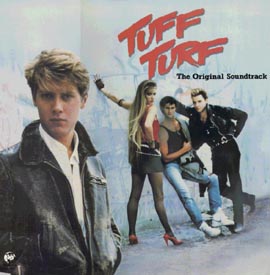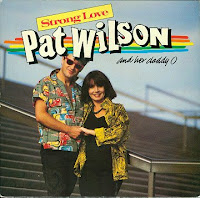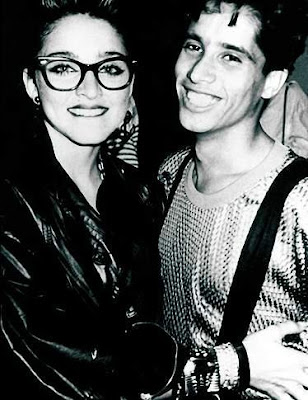
The New York-based session drummer had a major label record deal with Warner Brothers Records, a top-flight producer in Roy Thomas Baker, and bunch of favorable press coverage about his hot debut album “Calling All Girls.â€Â Best of all, though, was the album itself, which was an effort that actually lived up to its hype and delivered the kind of hook-filled pop songs that other artists could only dream about writing.
But one thing went wrong one the way to bubblegum bliss for the curly-topped drummer-turned-singer. Nobody was going into the record stores to buy the dang album. A few years earlier, Nigel Olsson (“Dancing Shoesâ€Â) had successfully made the transition from drummer to singer. So why not Hilly?
There’s probably no single, big reason. Just lots of little ones. The album was released during a period of post-Knack new wave backlash (which would end, but not until 1983). Then there were Michaels’ songs: They may have been a bit too quirky and ironic for the American pop scene then. It would take MTV to bring quirkiness back into pop music a few years later. Ironically, Michaels released a video for the title track which was a vivid cartoon scenario that would have probably caught on had it been released a few years later, when bands like A-Ha were expanding the boundaries of music videos.
Either way, the LP was terrific then and holds up now. It’s filled with jangly, electronic power pop that had critics – and Michaels himself – calling it “fun,â€Â “lightweight,â€Â and “bubblegum.â€Â Well, on the surface, maybe. But like a lot of great bubblegum, the tunes have a neurotic edge that plays off the upbeat music and makes them compelling.
Take the title track. It’s a fast-paced, synth-driven shout-out to women around that world that seems at first blush like an update of Eugene Church’s “Pretty Girls Everywhere.â€Â But lend an ear to the lyrics and they reveal Michaels as an “unhappyâ€Â bachelor with all the time and money in the world and no one to spend it on (kind of like the movie “Arthurâ€Â).
Other songs also mix melody ’n’ melancholy. “Teenage Daysâ€Â sure is funny in its depiction of skipping school assemblies, but Michaels reveals his nostalgic bent with the line “all good things must come to an end.â€Â Didn’t Allen Ginsberg call nostalgia a form of depression? In “Shake It and Dance,â€Â Michaels’ girlfriend is too busy shaing her booty to visit lovers’ lane with the poor dude. “Something on Your Mindâ€Â (featured in the film “Caddyshackâ€Â), finds Michaels pleading with his lover to find out why she’s upset as an oddball, operatic backup chorus trills along.
What makes this music really engaging is the dissonance between lyrics such as these and the hyped up arrangements, which could be described as the Cars on speed (Cars keyboardist Greg Hawkes even puts in an appearance). A very motley cast of musicians plays on the album, including Liza Minelli, her stepsister Lorna Luft, actor-singer Ellen Foley, “Saturday Night Liveâ€Â guitarist G.E. Smith and rocker-turned-disco-dude Dan Hartman (who Michael had once played drums for). Producer Baker makes the album snap, crackle and pop with his usual bag of tricks: Compressed drums, massed backing vocals, and lots of high and low frequencies, but little midrange.
In 1981, just as “Calling All Girlsâ€Â was filling the cut-out bins, Michaels released a follow-up called “Lumia.â€Â There was so little distribution of this LP that I’ve never even seen it (if someone has it, let me know!). After that, Michaels disappeared back to where ever session musicians go.
Hilly Michael’s two LPs are both out of print, but “Calling All Girlsâ€Â can be easily found at used record shops.







 Forget albums, CDs, or artists. Sometimes all you need to make a definitive statement is a single song.
Forget albums, CDs, or artists. Sometimes all you need to make a definitive statement is a single song.